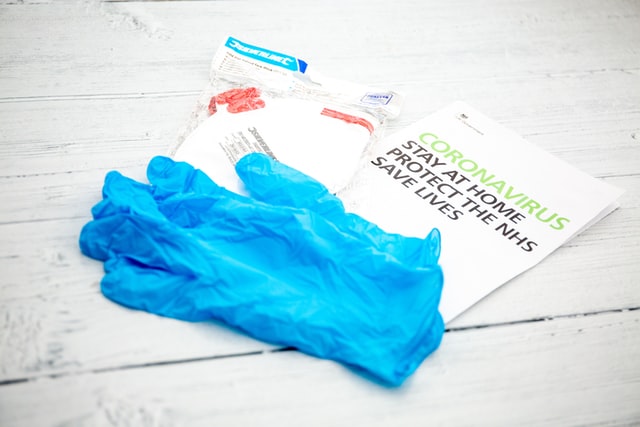World
‘Essential’ Employees Hesitate To Work Due To Lack Of Protection

There are approximately 880,000 positive cases of COVID-19 in the United States alone, according to the Center for Disease Control and Prevention. As the pandemic has put most of the country on lockdown, essential workers must still show up to their jobs. Some companies have taken a proactive action to help employees thrive in this crisis.
Amazon, for example, said that it has ramped cleaning efforts and social distancing. In addition, the company has changed its policy to allow unlimited unpaid sick leave. However, there is more that needs to be done to protect essential workers during this pandemic.
Calls For Aggressive Action
In the beginning of April, The National Safety Council has already called upon companies for an aggressive action regarding the safety of their workers. It’s not just because they are at high risk of being exposed to COVID-19, but many essential workers are paid the minimum wage. This reduces their chances of gaining access to healthcare services when they get sick. According to FVF Law, OSHA requirements will vary depending on the industry that the business is in. Understanding such rules and regulations in this time of a pandemic requires attention from a workplace injury lawyer.
Raising The Alarm
According to the NSC, around 70% of their member companies cannot work remotely since most of them are considered as essential workers. They further stated that the responsibility of the safety of their workers rests solely on the shoulders of the employers. Essential workers, including those who work in markets, delivery, and garbage collecting are feeling the impact of the pandemic. Since the lockdown has changed the workplace environment, it is up to NSC and their partner employers to come up with additional safety measures that will address the potential threat of the ongoing lockdown to their workers and customers alike.
Safety Recommendations For Essential Workers
As leaders, shifting schedules may help lessen the impact on the workforce while ensuring that they are still catering to their customers. Employees still working during the pandemic claim that proper safety measures are not being addressed. And some are even complaining about wrongful dismissal due to these situations during these tough times. A report by the Boston Globe says that GameStop employees were reportedly told to cover their hands and arms with plastic bags.
Hygiene practices, such as providing workers with hand sanitizers, should be implemented at all costs, including maintaining physical distancing as recommended by the CDC. Disinfection and cleaning must be done on high-traffic areas and equipment that are handled by several people.
These are trying times and it is only fair that many will feel frustrated about their current situation. The Shelter-in-Place order may grate on the public’s patience, but those who fall under the essential workers category do not have the luxury to remain at home. Their work is critical to keep the country functioning. With that being said, NSC has seen it fit to call upon business leaders to help their workers remain safe in the midst of the pandemic, while providing essential care to others.
World
Turkish Textile Giant Sun Textile Solution Proposal for Drought

While the World Health Organization (WHO) and the United Nations (UN) are seeking solutions to combat drought through various projects, Ekoten Textile, a subsidiary of Turkey’s textile giant Sun Textile, has developed a groundbreaking project in collaboration with a technology startup to minimize the intensive water consumption in the textile industry. This pioneering project, the first of its kind globally, will enable the recycling and reuse of up to 90% of the water used in textile production.
Drought is one of the most pressing issues facing the world today. According to WHO data, 40% of the global population is struggling with water scarcity. By 2030, up to 700 million people could be forced to migrate due to drought. The unconscious use of water in global production processes plays a significant role in the rapid depletion of clean water resources.
The textile industry is one of the sectors with the highest water consumption. In Turkey, while the food industry consumes 22% of the water used for industrial purposes, the textile sector follows closely with 18%. For instance, producing an average of 40 tons of products daily requires 2,500 tons of water, equivalent to the daily water consumption of approximately 10,000 people.
CLEAN WATER RESOURCES FOR HUNDREDS OF THOUSANDS OF PEOPLE EVERY DAY!
In textile production, where clean water resources are heavily consumed, the innovative success of the Turkish company stands out as a global best practice. This initiative will shape the future of the industry. The wastewater recycling project, developed through intensive R&D efforts, will ensure that over 90% of the required water is sourced from recycled supplies.
The reuse of wastewater in production will transform the fate of countries operating in the textile sector. By preventing the use of clean water resources for textile production, this project will free up clean water sources that can meet the daily needs of hundreds of thousands of people.
R&D ACTIVITIES IN 38 COUNTRIES WITH 380 PARTNERS!
Sun Textile places great emphasis on R&D activities, conducting research and development efforts with 380 partners across 38 countries. Sun Textile and its subsidiary Ekoten Textile export nearly 90% of their production, solidifying their identity as a leading exporter. The company ships products to numerous destinations worldwide, including European countries, the UK, and the US. Sun Textile, the leading ready-to-wear exporter in the Aegean Region, achieved a consolidated turnover of 250 million euros in the third quarter of 2024, continuing its active growth trajectory.
OFFERING CUSTOM DESIGNS TO CUSTOMERS
Sun Textile provides its own designed collections to leading brands in Europe and the UK. Ekoten Textile, its subsidiary, is among the most respected knitted fabric manufacturers in Turkey and Europe.
With a dedicated sales team for each major customer group and five design offices in three different countries, Sun Textile creates designs tailored to its customers’ needs. Its largest clients include the Inditex Group, H&M, Jimmy Key, Tesco, Kiabi, Marks & Spencer, and Next.
Sun Textile also extends its sustainability approach to social responsibility, notably for its high ratio of female employees. The company, which went public in 2022, is also listed in dividend indexes.
-

 Tech4 years ago
Tech4 years agoEffuel Reviews (2021) – Effuel ECO OBD2 Saves Fuel, and Reduce Gas Cost? Effuel Customer Reviews
-

 Tech6 years ago
Tech6 years agoBosch Power Tools India Launches ‘Cordless Matlab Bosch’ Campaign to Demonstrate the Power of Cordless
-

 Lifestyle6 years ago
Lifestyle6 years agoCatholic Cases App brings Church’s Moral Teachings to Androids and iPhones
-

 Lifestyle4 years ago
Lifestyle4 years agoEast Side Hype x Billionaire Boys Club. Hottest New Streetwear Releases in Utah.
-

 Tech6 years ago
Tech6 years agoCloud Buyers & Investors to Profit in the Future
-

 Lifestyle5 years ago
Lifestyle5 years agoThe Midas of Cosmetic Dermatology: Dr. Simon Ourian
-

 Health6 years ago
Health6 years agoCBDistillery Review: Is it a scam?
-

 Entertainment6 years ago
Entertainment6 years agoAvengers Endgame now Available on 123Movies for Download & Streaming for Free
